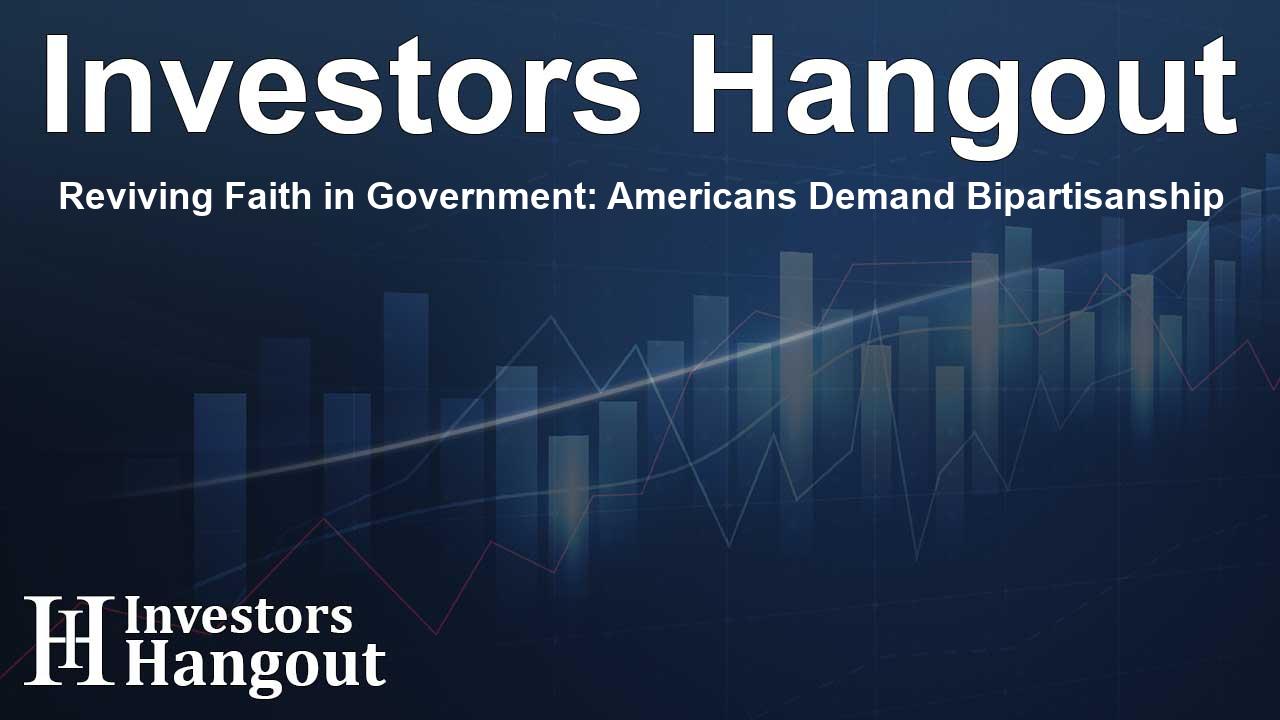Reviving Faith in Government: Americans Demand Bipartisanship

Exploring the Current Confidence in American Government
In recent discussions, it has become evident that Americans are showcasing a renewed confidence in their government institutions, particularly when compared to the early years of the Biden administration. The Society of Presidential Pollsters, led by its founder Mark Penn, has highlighted these findings, detailing the public sentiment surrounding different branches of government.
Institutional Confidence and Its Impact
According to the latest surveys, the confidence in the presidency has grown to 48%, which is a significant increase from 41% noted last year. This trend reflects an increasing belief among voters that the presidency is finally functioning effectively. On the other hand, trust in Congress has also seen a rise, with 39% of constituents viewing it positively, up from 32% in the previous year. Interestingly, the Supreme Court remains steady with 53% approval.
Political Party Perspectives
The survey results revealed diverse perceptions based on political affiliations. For instance, 63% of Democrats expressed belief in the President's effectiveness, while 58% of Republicans favored the Supreme Court as the more effective branch. This variation underscores the complexity of political sentiment among voters.
Desire for Bipartisanship
A striking finding from the poll is the public's overwhelming desire for bipartisanship within government operations. While 70% of voters maintain that bipartisan support is crucial for substantial policy reforms, 82% feel disillusioned by the current state of bipartisan governance, describing it as broken. Many believe that increased partisanship complicates decision-making, causing delays and inefficiencies.
Perception of Political Landscape
Many voters also expressed concern that their representatives are prioritizing party interests over national needs. A staggering 87% claimed that U.S. politics has devolved into a battleground of conflict rather than cooperation. Despite this, over three-quarters of voters still favor compromise methods over outright gridlock or singular party control.
The Call for Transparency
The survey indicates a substantial demand for increased transparency during election campaigns. A notable number of voters believe presidential candidates are not adequately sharing their positions on relevant issues, with 44% calling out Harris's campaign and 39% identifying similar shortcomings in Trump's messaging. This lack of information fosters skepticism among constituents.
Voter Expectations
To address these concerns, a large majority of voters advocate for mandatory policy papers and detailed financial disclosures from campaign efforts. Additionally, 82% desire to see comprehensive debates among presidential candidates to better understand their standpoints.
Defending First Amendment Rights
In the era of social media and rapid communication, there remains a strong consensus on protecting First Amendment rights. An impressive 81% of voters assert the need for bolstering protections around freedom of speech and press, with a notable majority believing these rights should extend to digital platforms. The discussion around misinformation has sparked concerns, where 54% see government moderation of misinformation as inappropriate.
Current Power Dynamics
The sentiment around institutional power is particularly interesting, as 64% of participants desire to maintain the status quo regarding the President's power, reflecting a shift from earlier opinions. Similarly, the perspectives on Congress and the judiciary indicate that most voters are satisfied with the power held by these institutions currently.
About the Society of Presidential Pollsters
The Society of Presidential Pollsters was established at George Washington University. This organization serves a select group of former public opinion advisors, aiming to preserve the history of polling associated with the Presidency over the past several decades. Their insights play a crucial role in understanding American public opinion.
Frequently Asked Questions
What does the recent poll show about American confidence in government?
The poll indicates that confidence in the presidency and Congress has increased, reflecting a gradual change in public perception.
How do political party affiliations influence views on government effectiveness?
Democrats tend to trust the President more, while Republicans tend to prefer the Supreme Court's effectiveness, indicating a split in perception based on political alignment.
What is the public’s stance on bipartisanship?
Many Americans express a strong desire for bipartisanship, feeling that the current system is broken and not responsive to their needs.
Are voters calling for more transparency in campaigns?
Yes, voters are demanding greater transparency and accountability from presidential campaigns regarding their positions and financing.
How important is the First Amendment to voters today?
There is significant support for First Amendment protections, with many believing these rights should extend to social media and technology platforms.
About Investors Hangout
Investors Hangout is a leading online stock forum for financial discussion and learning, offering a wide range of free tools and resources. It draws in traders of all levels, who exchange market knowledge, investigate trading tactics, and keep an eye on industry developments in real time. Featuring financial articles, stock message boards, quotes, charts, company profiles, and live news updates. Through cooperative learning and a wealth of informational resources, it helps users from novices creating their first portfolios to experts honing their techniques. Join Investors Hangout today: https://investorshangout.com/
Disclaimer: The content of this article is solely for general informational purposes only; it does not represent legal, financial, or investment advice. Investors Hangout does not offer financial advice; the author is not a licensed financial advisor. Consult a qualified advisor before making any financial or investment decisions based on this article. The author's interpretation of publicly available data shapes the opinions presented here; as a result, they should not be taken as advice to purchase, sell, or hold any securities mentioned or any other investments. The author does not guarantee the accuracy, completeness, or timeliness of any material, providing it "as is." Information and market conditions may change; past performance is not indicative of future outcomes. If any of the material offered here is inaccurate, please contact us for corrections.